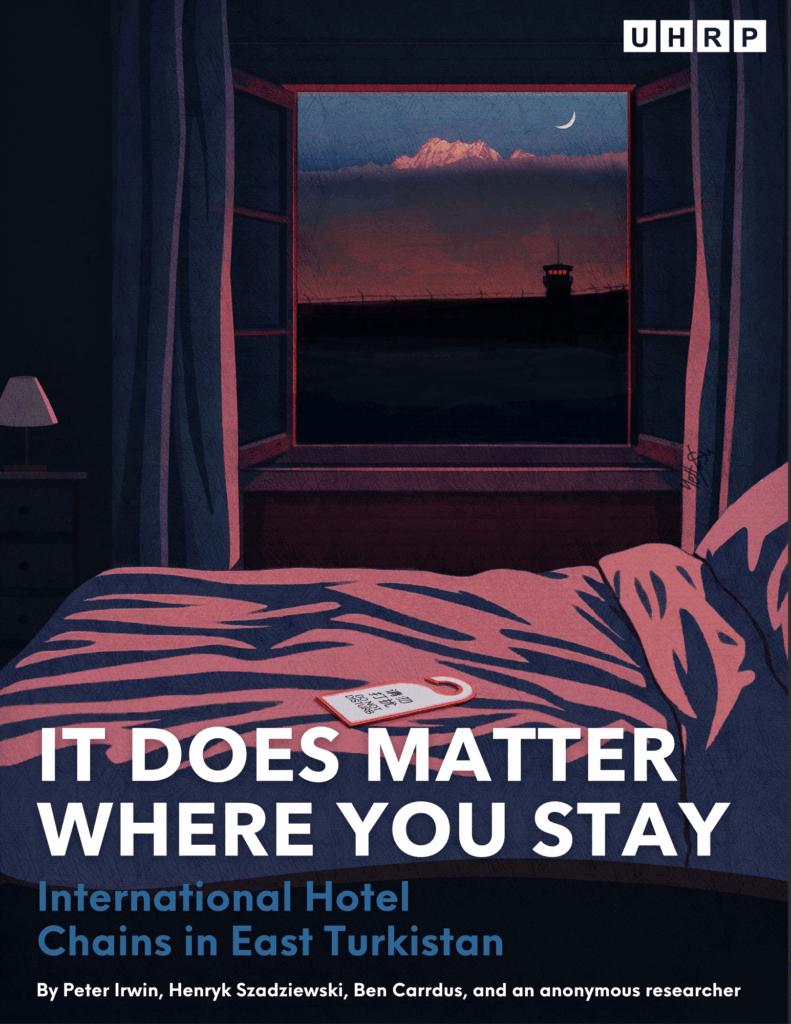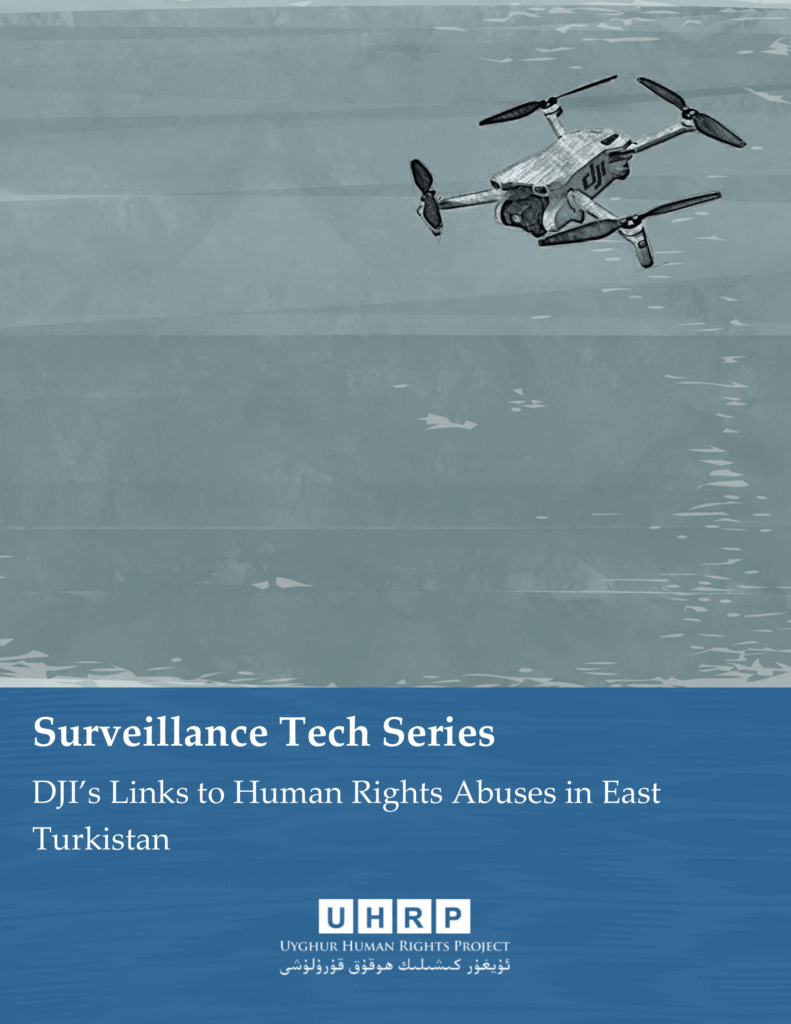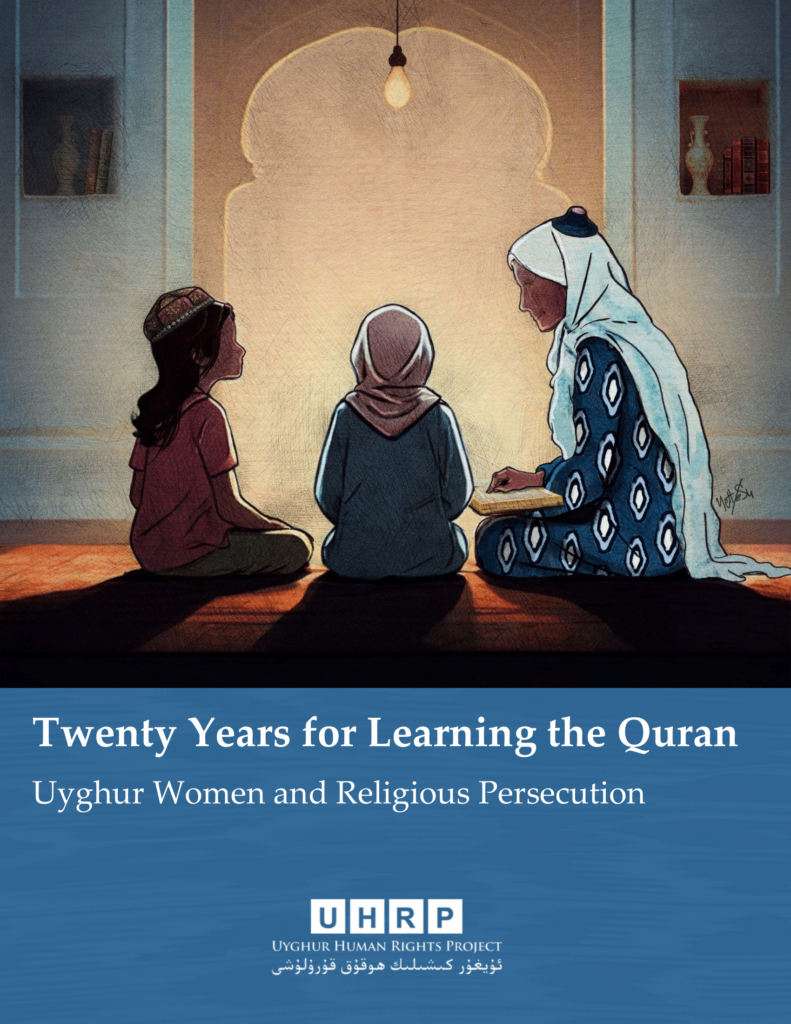A Uyghur Human Rights Project Explainer by Nicole Morgret
Punishment for prayer and reading the Quran
- Religious expression is one of the primary reasons the government is sending people to the expanding network of internment camps across East Turkestan (aka Xinjiang). There are reports of people being sent to the camps for having attended a wedding or funeral where a religious passage was read.
Forced declarations against God and loyalty to the Communist Party
- Victims of the camps who have managed to reach safety have described being forced to renounce belief in God and to praise President Xi Jinping and the Communist Party. They are required to write self-criticisms of their “terrorist” and “separatist” actions, and to pledge to drink alcohol, smoke cigarettes and tell other Uyghurs about the evils of Islam.
Banning of Islamic weddings and burials
- “Burial management centers” are being set up in towns in order to prevent traditional funeral rituals, and to enforce cremation instead of burial. “Interfering” in weddings and funerals is an illegal activity, although “interfering” is not defined. The authorities monitor Uyghur ceremonies for any behavior considered suspicious, such as not crying at funerals.
Confiscation of the Quran
- In 2017, reports emerged of Uyghurs’ houses being searched, and all “illegal” religious items being confiscated. That included prayer rugs, decorative items with Quranic inscriptions, and any items with the star and crescent symbol. Even official translations of the Holy Quran have been confiscated from households and removed from bookstores.
Destruction of mosques
- Mosques are being demolished and some have been converted into commercial spaces to house businesses such as cafes and bars. It has been reported that 5,000 were demolished in 2016 and that most communities have only one central mosque remaining, which is heavily monitored with facial recognition cameras.
- The architecture of the remaining mosques is a major concern for the government, which has removed crescents and domes. It has replaced religious plaques like “There is no God but God and Mohammed is his Prophet” with government propaganda slogans such as “Love the Party, Love the Nation.” Shrines have also been closed and all religious activity outside the mosque is criminalized.
Muslim name ban
- A list of forbidden baby names was released in May 2018, a government effort to “curb religious fervor.” The banned names included many common Muslim names such as Muhammad and Fatima. Parents are forbidden from giving their newborns these names, and were forced to change the names of their older children as well. A total of 29 names have been banned.
Anti-Halal campaign and restrictions on Ramadan
- Uyghurs have been restricted from following Halal dietary traditions for some time, including restrictions on fasting during Ramadan. Shopkeepers have even been forced to violate Halal.
- Authorities have now launched an anti-Halal campaign. Communist Party officials, who are sent to Uyghur homes to monitor their political attitudes, buy and prepare food to test whether Uyghurs will ask what meat is in the dish.
Detention and prison for imams and religious students
- Beginning in early 2017, Uyghur students studying abroad were swept up in a campaign to assess their political attitudes. Those studying religion, such as the students at al-Azhar University in Cairo, were a particular target. Those forced to return were disappeared or given long prison sentences, and two died in custody.
- Muhammad Salih Hajim, the 82-year-old religious scholar who translated the Holy Quran into Uyghur, was taken into custody in late 2017, where he later died. The authorities have still not announced his death to the public nor revealed the circumstances of it. Nearly every member of his family has also been detained, including his children, siblings, and nephew.
Punishment for the Hajj
- China has always strictly controlled the Hajj, allowing only small numbers of elderly people to go, accompanied the entire time by Communist Party officials.
- Recently a wealthy Uyghur businessman and philanthropist, Abdughapar Abdurusul, was sentenced to death for an unsanctioned Hajj, according to his brother. His assets, worth over 14 million USD, were seized by the state. More than 50 of his associates have been arrested or detained. His son was detained in 2017 and his sister is missing and believed detained, while his wife, Merhaba Hajim, reportedly died in detention.
FEATURED VIDEO
Atrocities Against Women in East Turkistan: Uyghur Women and Religious Persecution
Watch UHRP's event marking International Women’s Day with a discussion highlighting ongoing atrocities against Uyghur and other Turkic women in East Turkistan.



